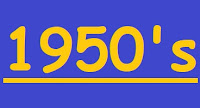I've always been frustrated with how DC Comics, their corporate arm, and some of their creators treat Wonder Woman. Diana Prince, Wonder Woman, is one of DC's Trinity... the 3rd marquee character for DC, behind Superman and Batman. And yet, Superman has iconic, nameable, well-written and well-drawn stories in every decade of his publishing career. Batman too. The amount of Batman and Superman comics and merchandise that get reprinted or released, then worshipped and gushed all over by fandom, compared to Wonder Woman, is insane. She deserves that too. DC needs to reprint her best stuff, decade by decade and keep her best stories in print.
You can name creators from every decade, every era who left important marks on Superman/Batman (Seigel/Shuster, the Weisenger Era with Curt Swan, Denny O'neil/ Cary Bates/ Elliot Maggin, Alan Moore, John Byrne etc. for Superman; Finger/Kane, Dick Sprang, Sheldon Moldoff, Carmine Infantino in the "New Look" era, Frank Robbins, O'neil/Adams, Mike Barr, Frank Miller, Alan Moore again etc. for Batman). These 2 characters have exciting, recommendable stories from every time period in comic book history.
Wonder Woman has just as long a history... but it's not nearly as rich. There are great Wonder Woman stories to be sure, but they start with George Perez' run, post-Crisis, then go to Messner-Loebs then John Byrne's run and on and on. Bill Marsden, Diana's creator, had a good run on Wonder Woman, despite his preoccupation with BDSM. But that was in the 1940's, at her beginnings. Can anyone name a run or story from the 50's to the 70's that's as definitive to Diana as "Kryptonite Nevermore" is for Superman or "The Ra's Al Ghul Saga" is for Batman? Unless you count her noteworthy time in the 70's where she had her powers removed -- noteworthy because it's awful -- I don't think her presence is as great as her historical importance makes her out to be. If I'm wrong, I'll gladly take any recommendations for a Wonder Woman run or story between Marsden and Perez that are as iconic as Batman: Year One or Whatever Happened To the Man of Tomorrow.
The Wonder Woman legacy needs to improve. She's always fared well in cartoons and other media. Her TV show from the 70's has seen a resurgence in popularity. The Justice League cartoons fostered many new fans from my generation. Perhaps it's because I'm a comics reader first, but I just want to see Wonder Woman be as popular in her original medium and in the reprint market as her two main counterparts are. Someone at DC needs to mine the DC Archives and put out a decent trade/hardcover/omni of the best Wonder Woman stuff. She just simply doesn't have that dynamic history of amazing stories that the two other marquee characters do. Why is that? Is she harder to write? Are her values and the ideas she represents out of vogue? I certainly hope neither is the case. It might be that she's a deeper character with more cerebral themes than the bat-themed vigilante or the man from Krypton. Whatever the case, fans seem to point to three relatively modern runs that are definitive for Diana Prince: the work of George Perez, Greg Rucka, and Gail Simone.
I love Wonder Woman and wish DC would milk her for all she's worth, at least as much as they've done with Superman and Batman. She's a great character and she deserves to be recognized as such. If it takes a Hollywood blockbuster and media exposure, in an age of superhero films, for her to gain prominent significance, so be it.










